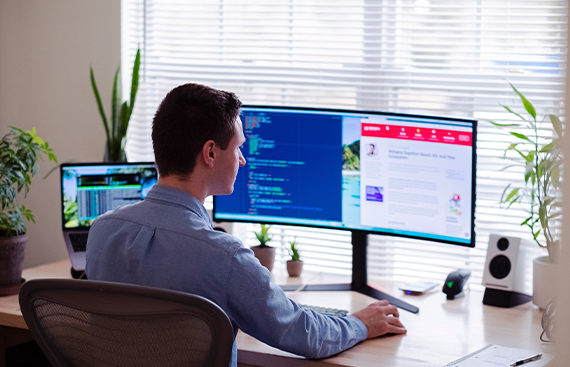Is Remote Employee Monitoring Backfiring On Employers?

Software for employee monitoring has become a hot trending topic as more and more people refuse to go back to the office in favor of working remotely but it has left a sour taste with employees being monitored because they don’t feel like they are being trusted.
An anonymous source reported that, “At first I thought that it would be like signing in to work but I realized that it was sending snapshots of what I was doing to my employer and it felt like such a gross invasion of privacy.”
The employee first noticed an employee monitoring software installed on his company laptop when he joined the company and he quickly noticed that it was taking screenshots of his work and uploading it, which was when he started to grow suspicious and uncomfortable.
“While I’m not doing anything more than working when I should be working, you don’t get this kind of scrutiny even back in the day when we were working in offices. We had the freedom to take a quick break from work, maybe watch a cat video or two, before focusing on our task at hand so as not to burn ourselves out.
But right now, I feel like I have a pair of eyes staring right back at me in the face and it has caused an unnecessary amount of pressure to perform well for the entire duration of work which isn’t sustainable - we’re not robots.”
However, employers that do use employee tracking systems beg to differ, stating that “employees are free to take breaks, but they can now do that in their own time instead of spending previous minutes of company time.
They have the liberty to stop the clock to run to the bathroom or fix up a lunch, hell, they could even watch a movie for all I care, as long as they clock the necessary amount of time as stipulated in their contract.”
Depending on how you look at it, it does seem that employee monitoring is here to stay. But that’s not to say that there aren’t shortcomings to using a time-tracking system. For instance, when an employee has finished their task for the day, should they have to stay on the clock doing nothing?
It leads to the powerful question of whether companies reward competency or dole out punishment in the form of expecting them to do more when they have already delivered what they were expected to do?
“Look, if I can do something in one hour that may take a newbie four hours to do, should I be punished by being given even more work to do? If that’s the case, what’s to stop me from finishing my work four days later, as long as I’m still working on it, I’m not technically doing anything wrong. But I don’t believe that I need to waste my time on something that I can finish quickly and employers should appreciate the fact that I was able to complete the task in a shorter time-frame and give me my well deserved time off.” a disgruntled employee said when asked what she felt about her company’s policy on employee monitoring.
“Right now, every time I complete a task, I’m given more to do, sometimes, it’s things that aren’t even part of my job scope. I believe that employers need to recognize that employees are people too and when they do a good job, they shouldn’t run the risk of having to do someone else’s job for them because they aren’t as competent.”
The truth of it is that employers and employees need to have a clear understanding of what they expect from one another during remote work Having open communication can help with these problems that are currently plaguing the workforce.
For employers, the ideal employee is essentially a robot that is constantly productive, moving on to the next task and the next, in order to keep the company going. But for employees, the ideal employer is someone who can recognize professionalism and competency and understand that employees that perform should be rewarded with personal time off, cutting short their work day in favor of the results that they deliver.
Read More News :



